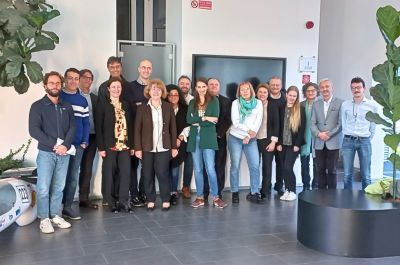
The M-TES project, titled "Metallic Phase Change Material-Composites for Thermal Energy Management," kicked off at Politecnico di Milano on November 6th, 2023. This project, led by Politecnico di Milano and funded by the European Innovation Council (EISMEA) under the Pathfinder action "Mid to Long Term and Systems Integrated Energy Storage," is set to revolutionize the field of Thermal Energy Storage (TES) and Thermal Energy Management.
Professor Elisabetta Gariboldi, the Project Coordinator and Principal Investigator (PI) from the Department of Mechanical Engineering, is spearheading the research. The project team also includes researchers from the Department of Energy, led by Ing. Andrea Lucchini, who serves as the Vice-Coordinator. Collaborating institutions in the M-TES consortium include the Consiglio Nazionale delle Ricerche, Siec Badawcza Lukasiewicz – Krakowsky Instytut Technologiczny, and Otto Von Guericke Universitaet Magdeburg.
Over the course of the 3-year project, M-TES aims to address energy-saving challenges by focusing on heat recovery, storage, and heat management in processes involving the production or re-use of energy in the form of heat. The primary objective is to devise cost-efficient and eco-friendly materials for Thermal Energy Storage and Thermal Energy Management, leveraging the heat stored or released during the phase transition of a metal, known as Phase Change Material (PCM).
The innovation lies in the creation of metallic phase change material-composites (m-PCMs), where structural and PCM metals are integrated into a single body. These m-PCMs offer both thermal functionality and mechanical structural properties. The project places emphasis on investigating suitable compositions, particularly targeting the recycling of waste materials and minimizing the reliance on critical raw materials. Furthermore, the project will explore the processing of these m-PCM composites to achieve shapes and performance characteristics suitable for future applications in the energy and industrial sectors. The overarching goal is to enhance energy efficiency without compromising environmental considerations, ultimately contributing to the development of sustainable and economically viable technologies.
